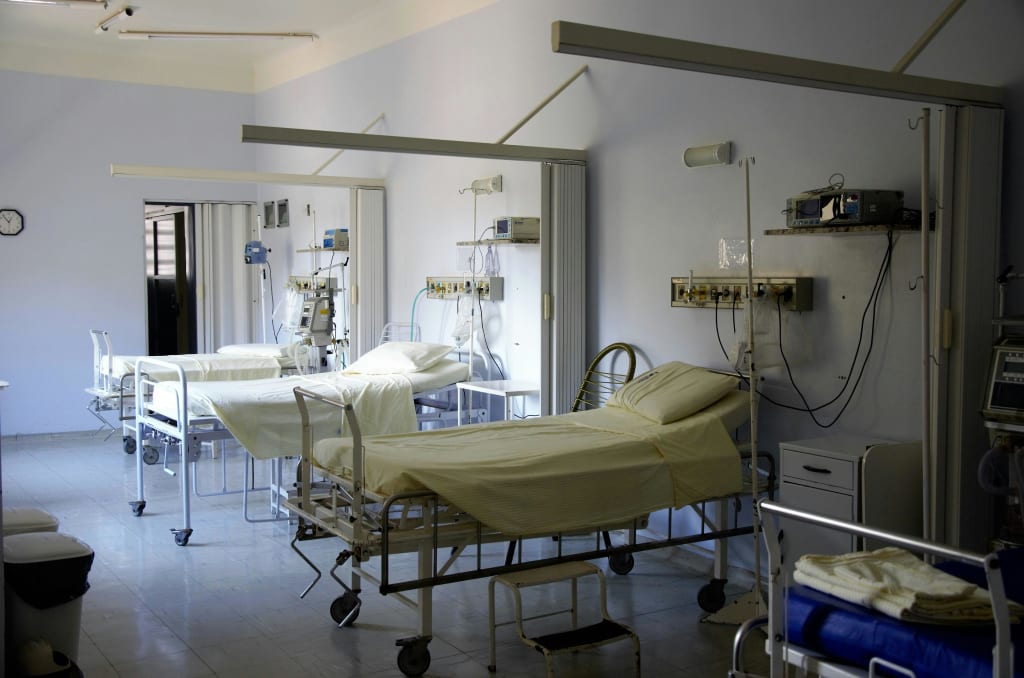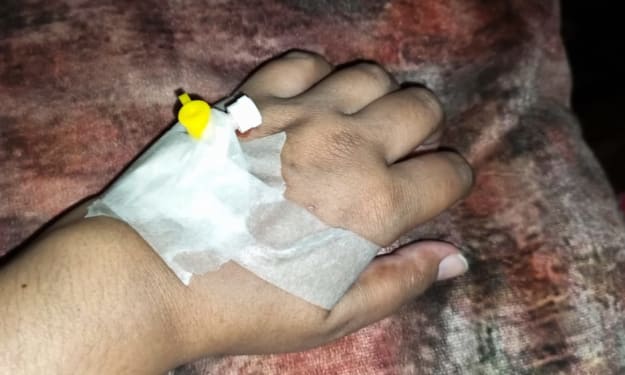Ways the Internet of Things is Revolutionizing the Healthcare Industry.
Discover how the Internet of Things is transforming the healthcare industry and improving patient care.

Enhanced Patient Monitoring and Management
The Internet of Things (IoT) is revolutionizing the healthcare industry by enabling enhanced patient monitoring and management. With IoT devices such as wearables, sensors, and remote monitoring systems, healthcare providers can collect real-time data on patients' vital signs, activities, and symptoms. This data can be analyzed to identify any abnormalities or changes in health conditions, allowing for early detection of potential issues.
By continuously monitoring patients, healthcare providers can proactively intervene and provide timely care, reducing the risk of complications and hospital readmissions. IoT devices can also enable remote patient monitoring, allowing patients to receive care from the comfort of their homes. This not only improves patient experience but also reduces the burden on healthcare facilities.
Moreover, IoT-enabled patient monitoring and management can improve healthcare outcomes by promoting adherence to treatment plans. For example, IoT devices can remind patients to take their medications, track medication usage, and provide feedback on adherence. This helps patients stay on track with their treatment regimens and leads to better health outcomes.
Overall, enhanced patient monitoring and management through IoT technologies is transforming healthcare delivery, enhancing patient safety, and improving health outcomes.
Efficient Healthcare Operations
The Internet of Things (IoT) is also revolutionizing healthcare operations, making them more efficient and streamlined. IoT devices can automate various tasks and processes, reducing the burden on healthcare staff and improving workflow.
For example, IoT-enabled inventory management systems can automatically track and monitor medical supplies and equipment. This ensures that healthcare facilities have an accurate inventory count, reducing the risk of shortages or overstocking. It also enables efficient procurement and restocking processes, saving time and resources.
In addition, IoT devices can optimize resource utilization in healthcare facilities. For instance, smart energy management systems can monitor and control energy consumption, reducing energy waste and lowering operational costs. IoT-enabled asset tracking systems can also improve the efficiency of equipment maintenance and utilization, ensuring that resources are utilized effectively.
Furthermore, IoT technologies can enhance communication and collaboration among healthcare professionals. IoT devices such as telehealth platforms and video conferencing tools enable remote consultations and virtual collaboration, enabling healthcare providers to deliver care more efficiently and effectively.
Overall, the implementation of IoT in healthcare operations leads to improved efficiency, cost savings, and better resource allocation.
Personalized Treatment Plans
The Internet of Things (IoT) is enabling the development of personalized treatment plans, tailored to the specific needs and conditions of each individual patient. IoT devices can collect and analyze data from patients, providing healthcare providers with valuable insights to personalize treatment approaches.
For example, IoT-enabled wearables can continuously monitor patients' health metrics, activities, and behaviors. This data can be used to create personalized exercise and lifestyle recommendations, ensuring that patients receive interventions that are aligned with their unique requirements.
Moreover, IoT devices can facilitate remote patient monitoring, allowing healthcare providers to track patients' progress and adjust treatment plans accordingly. This enables proactive interventions and timely adjustments, leading to better treatment outcomes.
Additionally, IoT technologies can support medication management by providing reminders, tracking medication usage, and offering personalized feedback. This helps patients adhere to their medication regimens, improving treatment effectiveness.
By leveraging IoT for personalized treatment plans, healthcare providers can deliver more targeted and effective care, resulting in improved patient outcomes and satisfaction.
Improved Medication Management
The Internet of Things (IoT) is playing a significant role in improving medication management in the healthcare industry. IoT devices and technologies are enhancing medication adherence, reducing medication errors, and improving patient safety.
IoT-enabled smart pill dispensers and medication reminder systems can help patients take their medications on time and in the correct dosage. These devices can send reminders, dispense medications, and track adherence. This promotes medication adherence and reduces the risk of missed doses or incorrect usage.
Furthermore, IoT devices can provide real-time medication monitoring and feedback. For example, smart inhalers can track inhaler usage and provide feedback on inhalation technique. This helps patients optimize their medication usage and ensures that they receive the maximum benefit from their treatments.
In addition, IoT technologies can enable healthcare providers to closely monitor medication inventory, expiration dates, and storage conditions. This ensures that medications are properly stocked, reducing the risk of medication shortages or expired drugs.
Overall, improved medication management through IoT technologies enhances patient safety, improves medication adherence, and optimizes treatment outcomes.
Enhanced Data Security and Privacy
As the healthcare industry adopts more Internet of Things (IoT) devices and technologies, ensuring data security and privacy becomes crucial. IoT-enabled healthcare systems generate and handle a vast amount of sensitive patient data, which must be protected from unauthorized access or breaches.
To address these concerns, IoT devices and platforms are designed with robust security measures. This includes encryption of data transmission, secure authentication protocols, and access control mechanisms. Healthcare organizations are also implementing strict data privacy policies and compliance measures to safeguard patient information.
Moreover, IoT technologies are advancing the field of cybersecurity in healthcare. Solutions such as intrusion detection systems, behavior analytics, and threat intelligence platforms can help identify and mitigate potential security risks and vulnerabilities.
By prioritizing data security and privacy, the healthcare industry can leverage the benefits of IoT while ensuring the confidentiality and integrity of patient information. This builds trust among patients and healthcare providers, facilitating the widespread adoption of IoT in healthcare.
About the Creator
Enjoyed the story? Support the Creator.
Subscribe for free to receive all their stories in your feed. You could also pledge your support or give them a one-off tip, letting them know you appreciate their work.






Comments
There are no comments for this story
Be the first to respond and start the conversation.